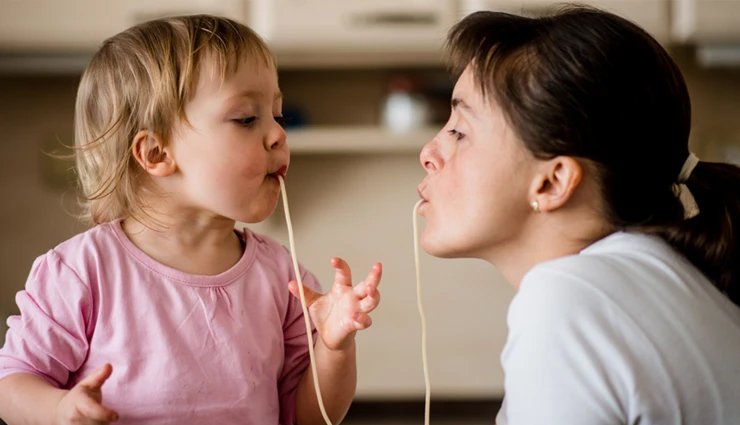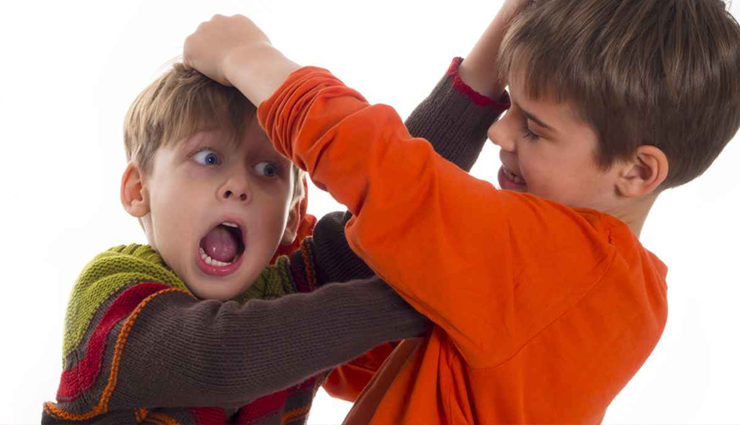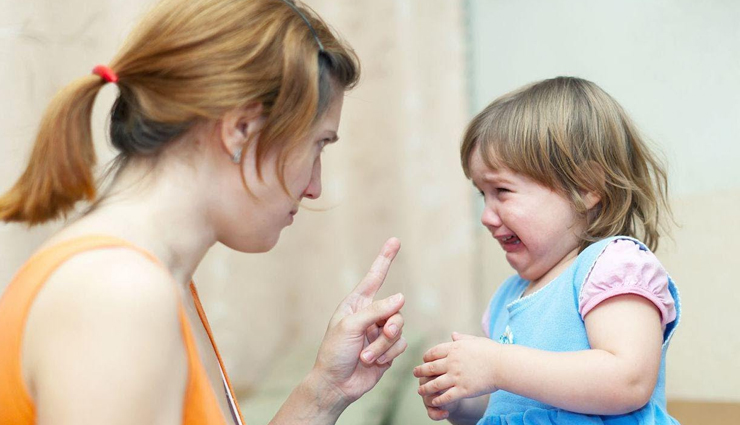- Home›
- Mates & Me›
- 10 Major Reasons Why Your Kid Misbehaves
10 Major Reasons Why Your Kid Misbehaves
By: Kratika Fri, 04 Sept 2020 11:46:37

Kids use their behavior to show how they’re feeling and what they’re thinking. Often, they’re communicating something through their behavior that they aren’t necessarily able to verbalize. When determining what discipline strategy to use, consider the possible underlying cause for the behavior problem.
* Seeking Attention
When parents talk on the phone, visit with friends or family, or are otherwise occupied, kids feel left out. Throwing a tantrum, whining, or hitting a sibling is a great way to attract attention.
Even if it’s negative attention, kids still crave it. Ignoring negative behavior and praising positive behavior is one of the best ways to deal with attention-seeking behaviors.

* Imitation
Kids learn how to behave by watching others. Whether they see a peer at school misbehave or they’re copying something they’ve seen on TV, kids will repeat what they see.
Limit your child's exposure to aggressive behavior on TV, in video games, and in real life. Role-model healthy behavior to teach your child the appropriate way to behave in various situations.2
* Testing Limits
When you’ve established rules and told kids what they’re not allowed to do, they often want to see if you’re serious. They test limits just to find out what the consequences will be when they break the rules.
Set clear limits and offer consequences consistently. If kids think there’s a small chance they may be able to get away with something, they’re often tempted to try it. If you show them that they'll receive a negative consequence each time they break a rule, they’ll become more compliant.

* Lack of Skills
Sometimes behavior problems stem from a lack of skills. A child who lacks social skills may hit another child because they wants to play with a toy. A child who lacks problem-solving skills may not clean their room because they aren't sure what to do when the toys don’t fit in the toy box.
When your child misbehaves, instead of just giving a consequence, teach them what to do instead. Show them alternatives to misbehavior so they can learn from their mistakes.
* Attempts at Independence
As preschoolers learn to do more things on their own, they often want to show off their new skills. Tweens also are known for their attempts to be independent. They may become more argumentative and may behave disrespectfully at times.
Give your child appropriate choices. Ask your preschooler, "Do you want water or milk to drink?" Tell your teenager, "It's up to you to decide when you do your chores. And as soon as your chores are done, you can use your electronics." Giving age-appropriate freedom will meet your child's need to be independent.

* Big Emotions
Sometimes kids have no idea what to do about their feelings. They may become easily overwhelmed when they feel angry, and as a result, they may become aggressive. They may even act out when they feel excited, stressed, or bored.
Kids need to learn healthy ways to deal with feelings such as sadness, disappointment, frustration, and anxiety. Teach kids about feelings and show them healthy ways to manage their emotions to prevent them from misbehaving.
* Unmet Needs
When a child feels hungry, tired, or ill, misbehavior often ensues. Most toddlers and preschoolers aren’t good at communicating what they need. As a result, they often use their behavior to show that they have unmet needs.
Parents can help prevent behavior problems by looking for unmet needs. For example, take a toddler shopping after they have had a nap and when you have snacks on hand. Ask your child how he’s feeling and look for cues that he may have some unmet needs.

* Power and Control
A need for power and control often contribute to misbehavior. Sometimes defiant and argumentative behavior results when a child attempts to assert control.
When behavior problems result from a child’s attempt to have control over a situation, a power struggle may ensue. One way to avoid this is to offer a child two choices. For example, ask “Would you rather clean your room now or after this TV show is over?” This can reduce a lot of arguments and increase the likelihood that a child will comply with instructions.
* Learned Misbehavior
One of the simplest reasons children misbehave is because it is effective. If breaking the rules gets them what they want, they’ll quickly learn that misbehavior works.
For example, a child who whines until their parents give in will learn that whining is a great way to get whatever they wants. Or a child who throws a temper tantrum in a store, and their father buys him a toy to get them to stop screaming, learns that temper tantrums are effective.
* Underlying Mental Health Issues
Sometimes children have underlying mental health issues that contribute to behavior problems. Kids with ADHD, for example, struggle to follow directions and behave impulsively. Underlying anxiety or depression can also contribute to behavior problems.
If you suspect your child may have an underlying mental health issue or developmental disorder, talk to your child’s pediatrician. An evaluation by a trained mental health professional may be necessary to determine if there are any underlying emotional issues contributing to behavior problems.





